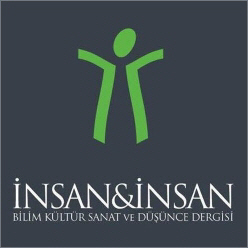Özet: Bu makale siyasal alanda şiddetin iki güncel formunu köken birliği içinde düşünmenin üzerinde duruyor: Güvenlik devleti ya da biyoiktidar gibi görünümler altında işleyen egemen iktidar formundaki şiddet biçimi ve uzlaşmaz/köktenci siyasi hareketler şeklinde siyasal alana kazınan şiddet biçimleri. Makale her iki şiddet biçimini birbirine bağlayan ortak bir temel olarak liberalizmin siyaset tasavvurunun sınırlarına dikkat çekiyor. Liberalizm siyasal toplumsal ihtilafları çoğulculuk ilkesi çerçevesinde ele aldığı; toplumsal-siyasal antagonizmanın gerektirdiği bir siyasal alan tasavvuru geliştiremediği ölçüde ya güvenlik devletine savruluyor ya da ihtilafa konu olan sorunları talileştirerek sürekli olarak erteleyen biçimsel bir demokrasi anlayışıyla yetiniyor. Bu durum, şiddet sorununun gölgesi altında düşünüldüğünde, liberal demokrasinin aslında siyasal bir demokrasi anlayışı açısından ontolojik sınırlara sahip olduğunu gösteriyor.
Anahtar kelimeler: Şiddet, Egemen şiddet, Liberalizm, Siyasal olan, Siyasal alan.
Liberalism, the Limits of Political Sphere and Violence in Post-Political Critiques
Abstract: This article points out the importance of considering the two current forms of violence in the political arena into a common base: violence in the form of sovereign power operating under security state or biopower practices and violence in the form of uncompromising/fundamentalist political movements scraped to the political arena. The article draws attention to the limited conception of politics in liberalism that causes two forms of violence. Liberalism is dealt with socio-political conflicts in the framework of the principle of pluralism. Therefore cannot develop a political conception of space required by the socio-political antagonism. As a result of this it either thrown to the security state or settles a conception of formal democracy that postpones permanently disputed problems. This case, considered under the shadow of violence, sheds light on the fact that liberal democracy has the ontological bounds especially considered in terms of of political democracy.
Keywords: Violence, Sovereign violence, Liberalism, The political, Political sphere.
